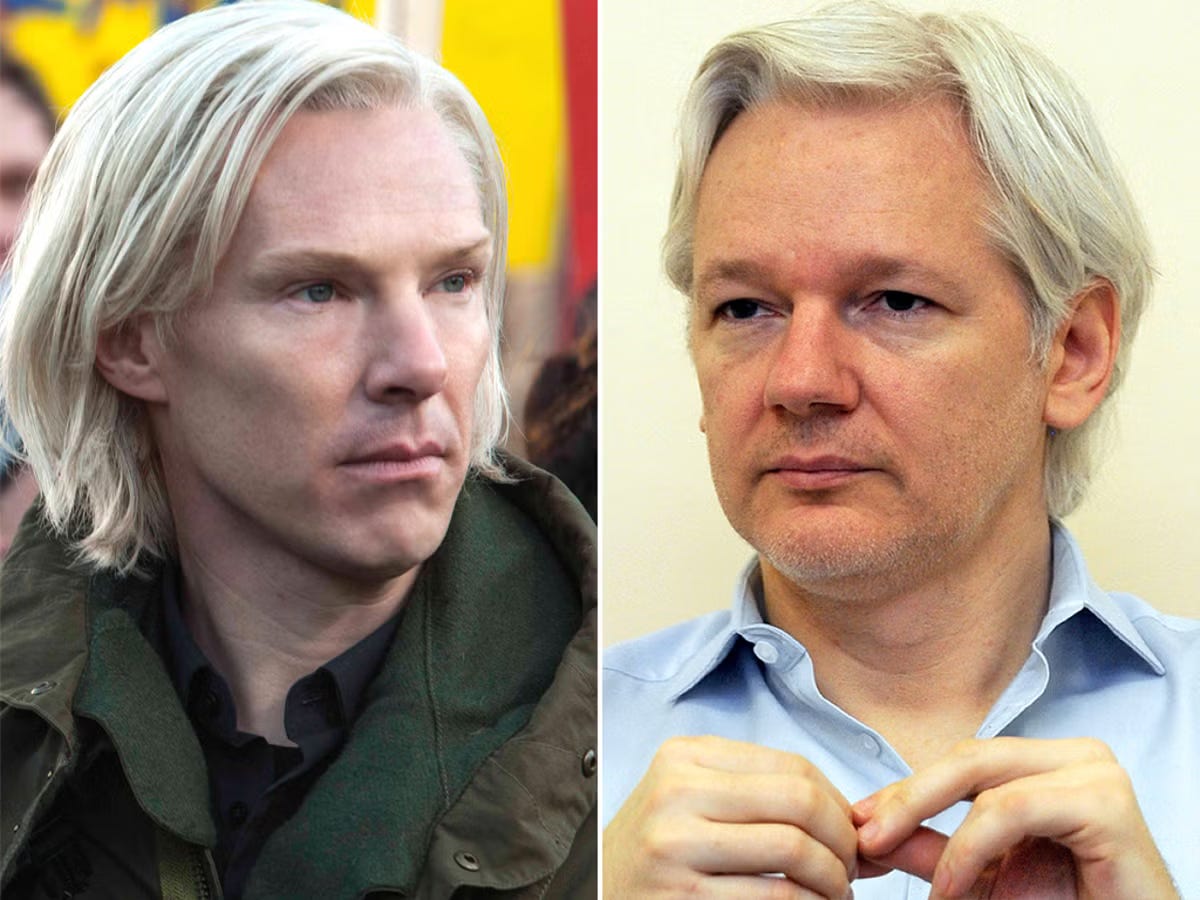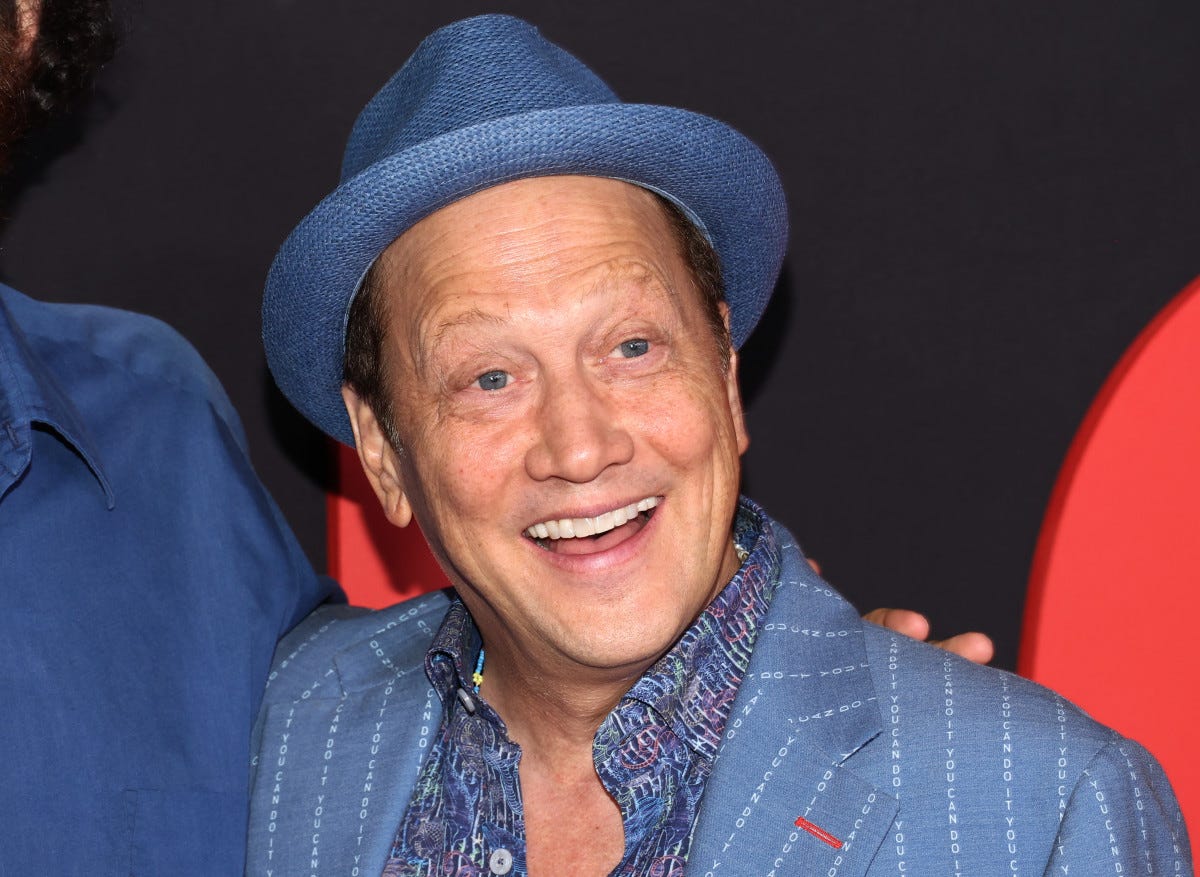The Censorship Grievance Industrial Complex: Part 2 - The War on Truth
Free speech is important. The right wants you to believe education is its enemy. Don't believe their lies.
Last week the independent journalist Matt Taibbi spoke at an event that was essentially a softcore Trump rally. It wasn’t a Jonestown tent revival, it was a pop-up market stall just outside of Jonestown, enticing the public with a taste of the goods and the promise of some much harder stuff in the back. Manning the stall and handing out the candy were various “anti-woke” centre-right types like Robert F. Kennedy Jr, Tulsi Gabbard, Russell Brand, and Jimmy Dore.
“In the back,” of course, the “harder stuff” in the caboose of the Trojan horse, were Tim Pool, who’s called for the imprisonment of Democrats, Charlie Kirk, who’s called for the street lynching of LGBT people, and Jack Posobiec, who’s written a book called “Unhumans,” about how leftists probably shouldn’t be considered people for the purposes of dealing with them.
Taibbi’s most prominent and, these days, just about only topic of interest is freedom of speech on social media. He along with the much more conventionally right wing Michael Shellenberger and Bari Weiss, were hand picked by Elon Musk to pen a series of hit pieces on Twitter’s former and outgoing staff, throwing them under the bus as self-promotion for the new direction he was planning on taking the company.
The premise was that Twitter under its former management had been cooperating with three letter agency directives to moderate content. Although Trump was president for much of the time covered, the offending agencies were seen as “Deep State” liberal saboteurs and social media companies, themselves insidious hives of treacherous liberals, were arms of that same Deep State.
Political grievances had been boiling for some time on social media as the platforms, being private companies, had codes of conduct. That’s fine for a Planet Fitness, but for a social media platform that runs you afoul of the dreaded censorship.
Musk promised to allow racism on Twitter again but he couldn’t just say it that way, and it’s hard to elicit sympathy for a supposed conspiracy of censorship against conservatives if you’re drilling down and just finding people who really just want to be allowed to say the N-word. There needed to be a meatier story. They needed evidence that the censorship of right wing speech was partisan, egregious, and ideally, illegal.
The juiciest stories—the home run winners—were perceived to be Twitter’s handling of the notorious Hunter Biden laptop scandal, and its handling of public health misinformation during the first year of the Covid pandemic.
As I’ve pointed out before, right wing operatives, particularly of the so-called “new right” of the Trump era, see politics not as a sport but as a war. There are no true rules in war, you do whatever wins it. As I explained in last week’s piece, the appearance of being a victim of censorship is persuasively appealing whether it’s true or not. The Twitter Files, the Musk-Taibbi-Shellenberger-Weiss collaboration, was an early volley into making a rhetorical case for returning the Republicans to power in 2024.
There is, I’ll argue, no coincidence in the fact that the right’s anti-censorship heroes—these Three Horsemen of the Twitter Files, Torch Bearers of the First Amendment—have each been ironically involved in campaigns to silence academics. But I’ll get to that.
The Twitter Files writers faced some hurdles: Most significantly, they couldn’t find anything explicitly illegal going on. That is, they couldn’t find any clear First Amendment violations—no examples of government agencies forcing or ordering Twitter to shut anybody up. Elon Musk commissioned the Twitter Files in the wake of his claim that agencies in the government forced Twitter to censor stories related to the Hunter Biden scandal, but Matt Taibbi was forced to conclude there was no evidence of this in Twitter’s internal communications (I suspect, but can’t confirm, that this contributed to the dissolution of Musk and Taibbi’s friendship).
What they did find were communications between Twitter management and Joe Biden’s presidential election campaign staff. This was problematic for the preferred narrative because, unless this story involves a hidden time travel component, neither Joe Biden nor his campaign staff were part of the government in 2019. The hard, illegal, Unconstitutional Censorship story that Musk and his journalists were hoping for started to decompose into the much less interesting “private citizens telling each other to shut up” censorship.
Republicans who wanted more from this story still looked for ways to try to bludgeon social media companies with the Constitution, arguing that it’s kind of a cop-out that private companies are allowed to make decisions about speech on their platforms. Capitalism’s cheerleaders are a funny bunch in that they tend to think private companies are all ontologically right-wing cowboys who will start appealing exclusively to conservatives once the collar of government regulation is pried off, so they act all surprised when companies still beat the drum of anti-racism. They’ll call it a shadow conspiracy and, ironically, invoke the government once again in the form of the Constitution to try to wrest control of the ship.
Internet users as old as I am, particularly those who did time as any kind of forum moderator, will recognise this as a scaled-up version of the upset shitposter complaining that deleting his posts about Pokémon genetalia might be legal but it’s not in the spirit of being legal. Commentators call it “censorship by surrogate,” or, “if it’s legal but I still really hate it, then is it really legal?” Jonathan Turley equates platform moderation with the phone company shutting off your phone connection if you say something they disapprove of.
Most of the platforms that blocked the Hunter Biden laptop story in 2019 now express regret for having done so. I think it was the wrong decision too, but who the hell am I? I also can’t blame them for behaving the way they did at the time.
No matter which way you slice it, the 2016 US election was a clusterfuck. It was arguably the first election of the “extremely online” era. It was the first election in which memes were officially recognised by the candidates. Hillary Clinton talked about Pepe the Frog. 4Chan bullshit like “Gamergate” and “Pizzagate” had a measurable impact on moving the needle. Foreign powers with a vested interest one way or the other didn’t need to send spies and provocateurs anymore, they could just wreak havoc remotely through the web. Russian hackers remotely accessed DNC emails and leaked them to US citizens via an Australian imprisoned in an Ecuadorian embassy in the UK.
Nobody was eager to go a second round with that mess. What the platforms failed to understand, I think, is that this is just how we’re going to do elections now. Social media platforms aren’t capable of directing the tides through brute force censorship. Misinformation is a weapon in this war, and things might be different if everybody agreed this was a bad thing.
To the contrary, one of the major parties in the US doesn’t just keep this weapon in their arsenal, they rely on it.
Like it or not (and I don’t), lying, by which I mean deliberate and explicit disinformation, is now a core part of the Republican strategy. It has been to an extent for a long time but I don’t think it was truly recognised and embraced as such until Trump. Maybe the stage was set a generation earlier when the Bush/Cheney administration got away with the WMDs in Iraq swindle. Those Republicans are a different type of animal entirely but that doesn’t mean the modern right doesn’t hve anything to learn from them. In any case the sophists of the right got their confirmation from Trump that the days of needing to contain their bullshit are over. There is no imperative to be truthful, there is only imperative to convince.
Here's the kicker. If you find that your lies aren’t convincing to the people you want to convince, then you can adjust your strategy in two ways: You can, you know, stop lying so much and be more honest. But that vastly diminishes your toolkit. It narrows your options to truthful statements. Bugger that. Your alternative is to attack whatever it is in your audience’s psyche that makes your lies unconvincing.
There is a strong and determined inclination on the right to attack education. There’s no organized conspiracy necessary, it’s just a matter of knowing which way the wind blows. Pure strategy. To weaken the voting public’s ability to counter misinformation you attack their ability to think critically. To quote JD Vance in turn quoting Richard Nixon: The professors are the enemy.
During his speech at the Rescue the Republic rally, Matt Taibbi opened with a lie immediately. It wasn’t a whopper, not a huge whomping motherfucker of a lie like the Haitian migrants eating cats thing, but a lie nonetheless.
(Actually two lies—his first is “This is every amateur speaker’s dream, to follow Russell Brand.”)
But the lie I’m referring to is “So what do all of us at “Rescue the Republic” have in common? Nothing!”
Horseshit.
The primary headliner of Rescue the Republic was Robert F. Kennedy Jr., whose life work has revolved around health science skepticism and conspiracy theories disguised as health policy. Kennedy, who Taibbi appears to hold in fairly high esteem, is a crackpot concern troll who keeps what conspiracists call “an open mind” about the germ theory of disease. His name was followed by a roll call of personalities that people familiar with the subject will know quite well: Robert Malone, Del Bigtree, Russell Brand, Rob fucking Schneider, stop me before I chant enough names to resurrect smallpox.
This was an anti-vaccine rally. I don’t know if Andrew Wakefield’s invitation got lost in the mail but he was one of the very few names you’d expect to see who wasn’t on the list of speakers. And although Taibbi isn’t known for long incoherent rants about spike proteins, mercury, and raw milk like many of his new friends are, he is clearly at the very least quack-curious, having participated in grand exposes of the Covid Lab Leak Conspiracy that turn out not to be that grand at all, that Pulitzer appearing much closer in his dreams than it is in reality.
Man, just once I’d love to come across a hardcore free speech advocate who actually advocates consistently for speech inclusive of that which he vehemently disagrees, who embodies the misattributed cliché of Pseudo-Voltaire, rather than seizing upon the cause as a front for his frustrations about his preferred narratives never rising organically to the top of the discourse. Taibbi, in raging against the censors, preaches that adults need to be trusted to arrive at the truth by their own accord, but then the truth he himself arrives at is a bunch of anti-intellectual shadow conspiracy nonsense cobbled together by a conga line of transparently grifting frauds.
The medical cynicism is just a warning sign. Taibbi’s larger project in the broad genre of anti-intellectualism is raging against and trying to put an end to the study of misinformation itself. He celebrated and thanked his readers for their battlefield victory when the Stanford Internet Observatory—a Stanford University program that studied how mis- and disinformation spread online—was forced to dismantle after a barrage of attacks, threats, and lawsuits by the GOP and Jim Jordan. “A Rare Win for Free Speech!” is what he called the act of shutting up pesky academics engaging in the Forbidden Research. And you know I so rarely seize on an opportunity to use a tired Orwell reference even if it fits, but doublethink really does come to mind here.
Now he’s turned his sights on Arizona State University’s Doctor Evil-esque diabolical research into “how narratives shape reality and how manipulations of the information environment threaten democratic norms and institutions.” Slow down there Dr Mengele.
But Matt Taibbi is strangely consistent in not viewing lawfare or SLAPP lawsuits as any form of censorship. He’s revealed as much before in his support for Elon Musk’s attempt to silence Media Matters to prevent them reporting on the prevalence of white supremacy material on Twitter.
This is one area in which Taibbi’s definition of censorship is actually more forgiving than that of some actual judges, like the one who threw out a similar SLAPP suit that Musk filed against another group of researchers for embarking on the same type of investigation.
Musk is an incredibly aggressive weilder of SLAPP suits, lawsuits designed to silence critics by either censoring them directly or overburdening them with expenses so that they are forced to shut up. The free speech right not only doesn’t ordinarily consider this censorship but in fact a useful weapon in their arsenal.
For Elon Musk and Matt Taibbi, it is an unconscionable act of censorship to shadowban a Nazi but it is absolutely fair game on researchers and academics. Why?
That “Free Speech Victory” against Stanford was aided in no small part by Michael Shellenberger’s brutal smear campaign against its former research manager Rene DiResta, who he relentlessly and falsely accused of being a CIA spook.
Again, misinformation wielded as a tool by the right to achieve an end. A tool they consider as legitimate as any other.
It must be made clear, though, that the study of misinformation as a concept, understanding how it spreads and the psychology behind it, is not itself censorship. Putting aside what you personally feel is true or false about any given topic, misinformation is nevertheless a real thing. We have to put that down as an axiom.
Those on the right who weaponize paranoia over censorship want to muddy even that concept. It is fair and very reasonable to say that adults of sound mind in general need ultimately to be trusted to sort fact from fiction in their own lives. I agree. It would chafe strongly against my policy to treat people as ends-in-themselves if I argued otherwise.
That said, the systematic project of the right to sow distrust in and dismissal of experts, academics, researchers, and the discipline of critical thinking itself threatens (I believe deliberately) the ability of adults to arrive at these truths. When political operatives try to convince you that you are arbiters of your own personal truths and there are no professionals or experts who can help guide you—that, in fact, they are nefarious and untrustworthy people—it comes precariously close to a cynical project to eliminate the idea that there is such a thing as truth.
That’s when all sorts of political bullshittery returns to the table.
I feel the need to repeatedly stress that I’m one of the biggest free speech advocates you’ll ever meet, but I’ll only ever do so in self-defence (pre-emptive, in this case) because I find the most honest and earnest free speech defenders are the people who don’t constantly harp on about it. They just are. I am very suspicious of people who define themselves as free speech activists, because they so frequently are pulling some kind of funny business. And my being passionate about free speech does not in any way negate the fact that there is a demonstrable effort on the right to weaponize censorship and free speech discourse selectively, and for a partisan political purpose.
The clearest and most alarming example of all this fell into my lap as I was gathering my thoughts for this piece—last week every single social media platform (except Substack, to their immense credit) censored the independent journalist Ken Klippenstein after he published an internal research document about JD Vance that was leaked to him by a hacker (a suspected state actor, possibly Iranian).
There is quite plainly no substantial difference between the publishing of this document and the publishing of the Hunter Biden leaks or, perhaps more analogous, the leaks of the Russian-hacked DNC emails back in 2015. What’s more, the universal censorship of this leak, demanded by the GOP and its proxies, comes after those very same people made all the same platforms promise under oath that they would never do this exact thing ever again after the brutal smackdown they were given for mishandling the Hunter Biden laptop.
The only difference in this case? Which side of the political aisle the fallout stands to damage.
The unforgiving censorship campaign against Klippenstein was, naturally, led by Elon Musk, one of the most censorious media oligarchs in human history who has somehow gaslit people into thinking he’s a free speech proponent. But then that’s part of the war for your mind—the political fanatics spreading information chaos and telling you it’s for your own good.
There’s never been a more crucial time for us to reassert command over our minds. Speech is free. Truth is real. Embrace both. Don’t let them tell us what to think or study.
Update 12 Oct - This morning news reports have revealed that Musk’s censorship of Ken Klippenstein was coordinated with the Trump campaign. Klippenstein’s Twitter account was restored on the same day. Matt Taibbi has to his credit come down on Klippenstein’s side of this case but it’s worth mentioning the difference—when the old Twitter regime did this exact same thing with the Hunter Biden story for several hours, Taibbi’s response was to write a 20-part series of news essays about it. When Musk did it for a couple of week’s, Taibbi’s response was to tweet meekly about it when pressed to defend himself, then spoke at a Trump rally in defense of Musk.















Agree with everything, apart from the Assange/Russia bit (which I don't buy)